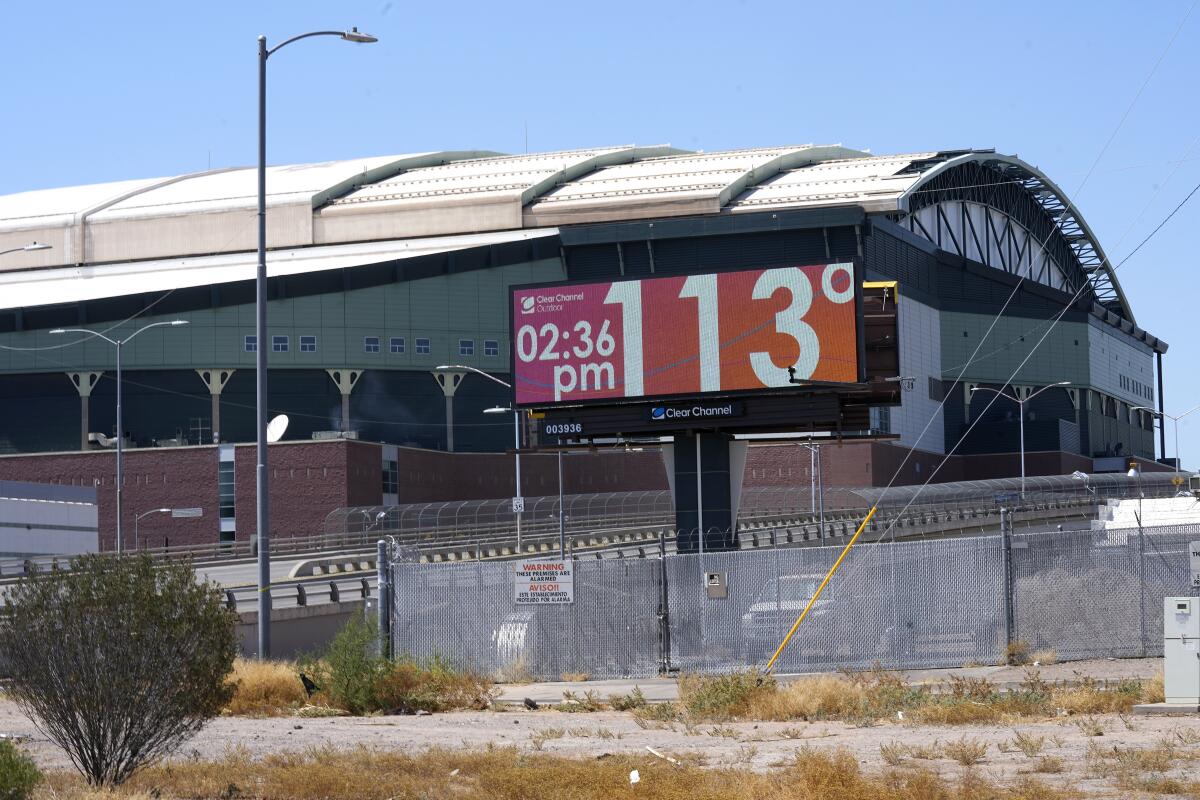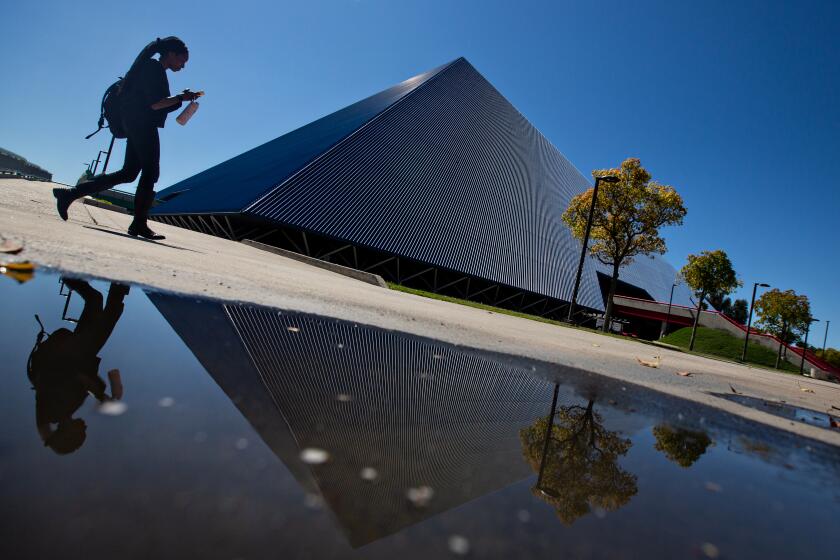Letters to the Editor: Protecting seniors from a boiling planet

- Share via
My air conditioning was broken for the first week of this recent heat wave, and after it was fixed, as I basked in its glory, I thought about how lucky I was to have it at all. So many don’t, and the temperatures are only going to go up.
It isn’t just me wondering how this heat is affecting people. The Editorial Board wrote about how the city can save lives by requiring air conditioning in rentals. This is the second attempt by officials to pursue this type of rule. As the Board stated, “the climate isn’t waiting, and neither should we.”
It’s our most vulnerable populations that experience the worst of it. People living in poor and low-income households often work outside and live in places without air conditioning. Our homeless neighbors live outdoors. All of these communities may lack access to the amenities many of us, myself included, come to think of as normal.
Our seniors are especially at risk from the high temperatures. When three scholars wrote an op-ed on the dangers this group faces from the heat, many readers weighed in.
————
To the editor: It’s a terrifying reality that the parts of our country that are facing the fiercest effects of climate change house a substantial elderly population. Once seen as islands of paradise to escape cold northern winters, southern and western states are quickly becoming lethal hellscapes to their most vulnerable populations. As noted in the op-ed by Carr, Falchetta and Wing, the risk of heat-related deaths are no longer relegated to the southern reaches of this country.
In fact, that risk is only increasing. Birth rates in the U.S. have been consistently declining since the mid-2000s, and average global temperatures have been rising for much longer. What will we do as we continue to age and the world gets hotter? How will our elected leaders address these problems that only worsen? They must command the situation and remove our reliance on fossil fuels to protect current and future generations. They must act today.
Cody O’Neill, Glendale
..
To the editor: The op-ed on the vulnerability of older adults in extreme heat is yet another sobering reality of our warming climate. Public investments for climate adaptations — cooling stations, warning systems, transport — are essential.
But we also need, desperately, to invest in new energy systems. It’s time to demand that our representatives sign swift climate legislation that will stop the burning of fossil fuel. The Inflation Reduction Act was just a start. If the true test of a civilization is the way that it cares for its weakest members, we are failing. Let’s act as if our house is on fire, because it is. Let’s do whatever we can to let our leaders know we must stop the use of fossil fuels.
And let’s befriend our neighbors, young and old, and seek shelter as this place continues to heat up.
Maggie Light, Van Nuys
..
To the editor: The op-ed on why older adults are especially susceptible to the extreme heat we have been experiencing lately was another sobering reality check. When I got back from work today, I needed a walk, but didn’t go because of the temperature.
What our older population must be going through, especially in underserved areas, cannot be overstated. With climate change becoming a climate boil, this is only going to get worse before it gets better, and we need to prepare.
As stated, older adults are more vulnerable to the heat both mentally and physically. We need to be doing more for our older populations’ mental and physical health and utilize the resources provided by the Inflation Reduction Act.
Let’s urge our legislators to take full advantage of this historic law to acquire the resources to prepare for the next heat wave so we can all go for an afternoon walk.
William Smart, North Hollywood






